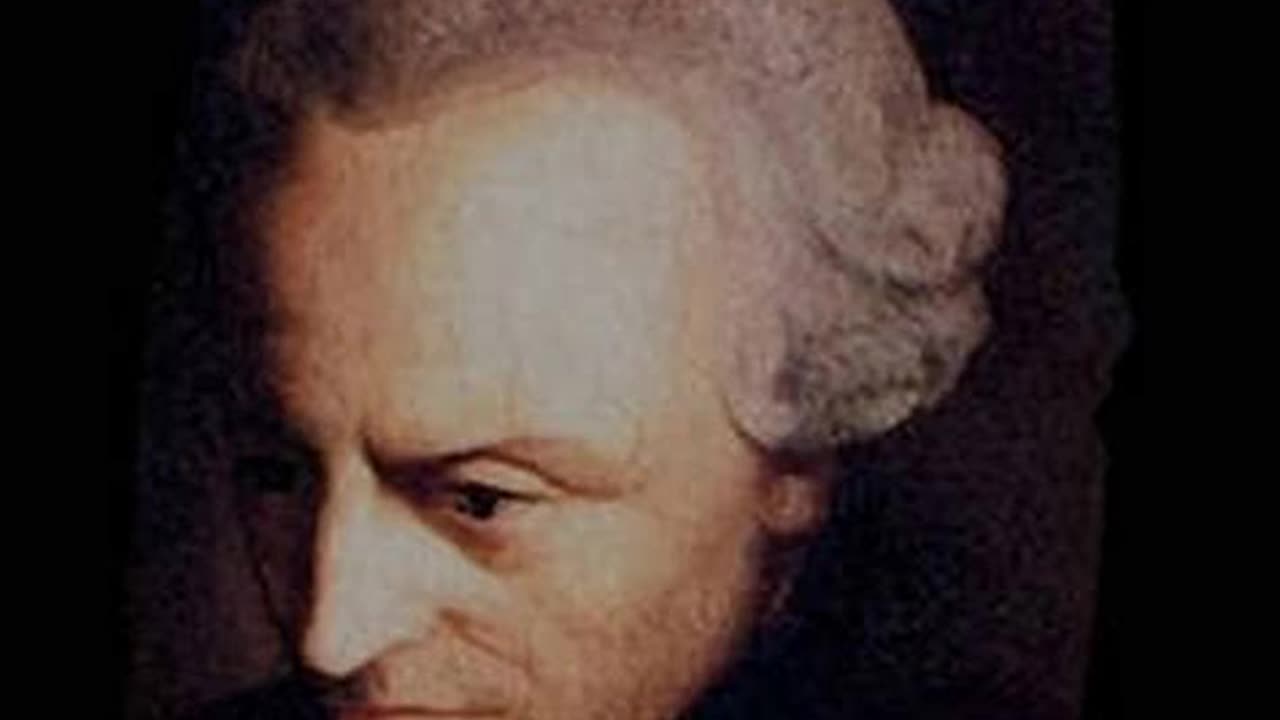Premium Only Content

Critique of Practical Reason by Immanuel Kant | Summary and Critique
Buy Here: https://amzn.to/3PpahVy
"""Critique of Practical Reason"" is a philosophical work by German philosopher Immanuel Kant, first published in 1788. It is the second part of Kant's ""Critical Philosophy,"" which also includes ""Critique of Pure Reason"" and ""Critique of Judgment."" In ""Critique of Practical Reason,"" Kant explores the nature of moral reasoning and the foundations of ethical theory.
Kant's central argument in ""Critique of Practical Reason"" is that moral principles are based on reason and the rational nature of human beings, rather than on subjective feelings or desires. He argues that moral laws must be universal and apply to all rational beings, and that they must be based on a principle of autonomy rather than heteronomy. Kant also discusses his concept of the ""categorical imperative,"" which is a principle that requires us to act only according to those rules that we can will to be universal laws.
Kant's writing style in ""Critique of Practical Reason"" is dense and complex, and his ideas have been the subject of much debate and interpretation. However, the work has had a profound impact on subsequent philosophical and ethical thought, particularly in the areas of moral reasoning and autonomy. It has also influenced the development of fields such as political theory and social justice.
Overall, ""Critique of Practical Reason"" is a challenging and important work in the history of philosophy, exploring the foundations of moral reasoning and the nature of ethical theory. While its ideas may not be easy to grasp, its impact on subsequent thought has been profound, and it remains a key text in the study of ethics, politics, and social justice."
-
 LIVE
LIVE
Laura Loomer
1 hour agoEP91: BIG TECH BILLIONAIRE TAKEOVER: Will MAGA Get the Justice We Deserve?
1,739 watching -
 LIVE
LIVE
Kim Iversen
3 hours agoHOLY SH*T! Zuckerberg DROPS CENSORSHIP Policy—Is Free Speech BACK? | Trump’s AMBITIOUS Move to Claim Greenland, Panama Canal & Canada
2,362 watching -

Glenn Greenwald
5 hours agoWhat Mark Zuckerberg’s New Misinfo Policy Means For Internet Freedom; The Disinformation Complex: Dismantled At Last? | SYSTEM UPDATE #384
28.5K40 -
 UPCOMING
UPCOMING
Danny Polishchuk
6 hours agoThe Ultimate Comedy Hang Call In Show - Live From One Of New York City's Best Comedy Clubs
493 -
 9:58
9:58
Scammer Payback
3 hours agoEditing a Scammer's File to Send his Real Identity
5222 -
 LIVE
LIVE
FreshandFit
4 hours agoElon Musk Censors Me, Alex Jones Stays Silent, & Tate Runs For PM!
2,642 watching -
 LIVE
LIVE
Slightly Offensive
3 hours agoZuck SUBMITS to Trump: Is Censorship OVER?! Or Just Beginning?
942 watching -
 20:11
20:11
BlaireWhite
4 hours agoI Got Kicked Out Of Pride For Asking Questions
21.7K37 -
 58:39
58:39
The StoneZONE with Roger Stone
3 hours agoDemocrats Recycle Lies About January 6 One Last Time | The StoneZONE w/ Roger Stone
4.59K -
 1:15:53
1:15:53
Edge of Wonder
6 hours agoTop Unexplained Mysteries: Cryptids, Atlantis & Time Travel
8.71K3